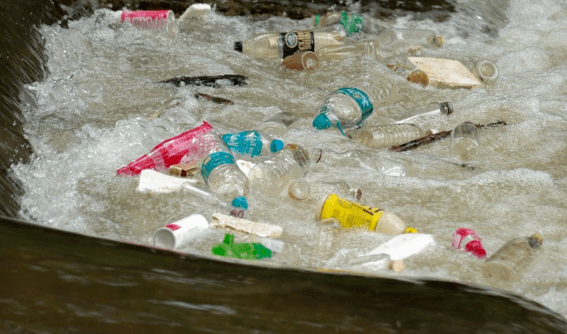On April 8, 2022, the University of Portsmouth in the United Kingdom held a conference to discuss the success of policies to address the global plastic pollution crisis. The two-day online seminar reviewed research and recommendations initiated by the Global Plastics Policy Center, which was launched last year during the COP26 climate summit.
Representatives from the World Economic Forum, OECD, EU and governments including Japan and Maldives, academic experts, industry players and leading NGOs will be in attendance.
Professor Steve Fletcher, director of the Center for Global Plastics Policy, told us that the meeting was timed to help develop the recently agreed global plastic pollution treaty, which was signed by UN member states last month. "The University of Portsmouth is working with and supporting the United Nations Environment Programme's policy options to address the global plastics crisis. The launch of the Global Plastics Policy Center comes at a good time, given the task of developing a global agreement to end plastic pollution."
"The Center will bring an evidence-based approach to plastics policy development. A framework has been developed to evaluate individual policies that are scored against criteria and supported by evidence. The center is the first of its kind, and the team believes it will provide the evidence base for real change."
Treaty Troubleshooting
Since the UN plastic pollution treaty was signed, there have been concerns that the framework currently being developed may be too broad and lead to loopholes through which plastics companies can escape liability for pollution and human health harm.
The treaty aims to end pollution by addressing the entire life cycle of plastics from production to disposal. Participants in the ongoing GPPC event discussed recycling regulations, extended producer responsibility, deposit return programs, plastic bag bans, selected single-use plastic product bans, taxes and promotional tools.
The team has been busy evaluating more than 100 plastics policies around the world, and now the GPPC is in the final stages of formation. As with all scholarship, peer review is critical, so I am very pleased to be able to present our work to such a distinguished group of experts," Fletcher said.
"We expect that this valuable feedback will be the final phase of the study's conclusions. Once the policy assessment is complete, GPPC will create an online platform with resources, case studies and videos. The center will provide a much-needed independent assessment of global plastics policy that will be freely shared with the world."
Action speaks louder than discussion
Fletcher emphasized that the meeting would focus on how to implement rapid change, rather than expanding the discussion.
"To address the global plastics crisis, concerted international action is key. Countries need to work together. Change must be systemic, and isolated interventions will not work."
"I prefer to think of the problem as an opportunity. Solutions for plastic waste range from economic solutions to providing the right incentives and disincentives for change. They may also include behavioral solutions, such as encouraging the public to choose different types of plastic products, or reducing dependence on plastic in some way."
"But perhaps the most important opportunities lie in the area of technology solutions - there are big opportunities for green and clean technologies to participate." Isolated solutions won't work; plastic pollution must be tackled in a unified global way.

The expansion of new bio-based materials, advanced recycling methods and artificial intelligence has been transforming the packaging and waste management space for years. Bringing such innovations to market and making them cost-competitive with traditional solutions and processes is a central goal of industry and government in addressing pollution.

